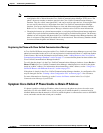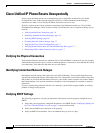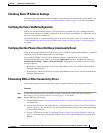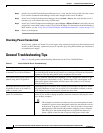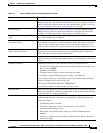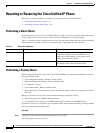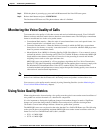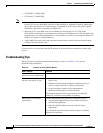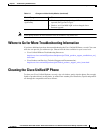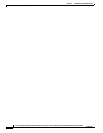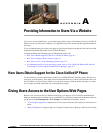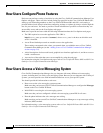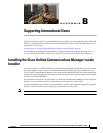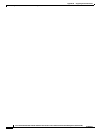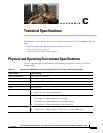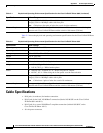
7-13
Cisco Unified IP Phone 6901 and 6911 Administration Guide for Cisco Unified Communications Manager 8.5 (SCCP and SIP)
OL-23874-01
Chapter 7 Troubleshooting and Maintenance
Where to Go for More Troubleshooting Information
Note Voice quality metrics do not account for noise or distortion, only frame loss.
Where to Go for More Troubleshooting Information
If you have additional questions about troubleshooting the Cisco Unified IP Phones, several Cisco.com
web sites can provide you with more tips. Choose from the sites available for your access level.
• Cisco Unified IP Phone Troubleshooting Resources:
http://www.cisco.com/en/US/products/hw/phones/ps379/tsd_products_support_troubleshoot_and_
alerts.html
• Cisco Products and Services (Technical Support and Documentation):
http://www.cisco.com/en/US/products/ps10326/tsd_products_support_series_home.html
Cleaning the Cisco Unified IP Phone
To clean your Cisco Unified IP phone, use only a dry soft cloth to gently wipe the phone. Do not apply
liquids or powders directly on the phone. As with all non-weather-proof electronics, liquids and powders
can damage the components and cause failures.
MOS LQK scores increase
significantly
• Check to see if the phone is using a different codec than
expected (RxType and TxType).
• Check to see if the MOS LQK version changed after a
firmware upgrade.
Table 7-3 Changes to Voice Quality Metrics (continued)
Metric Change Condition



